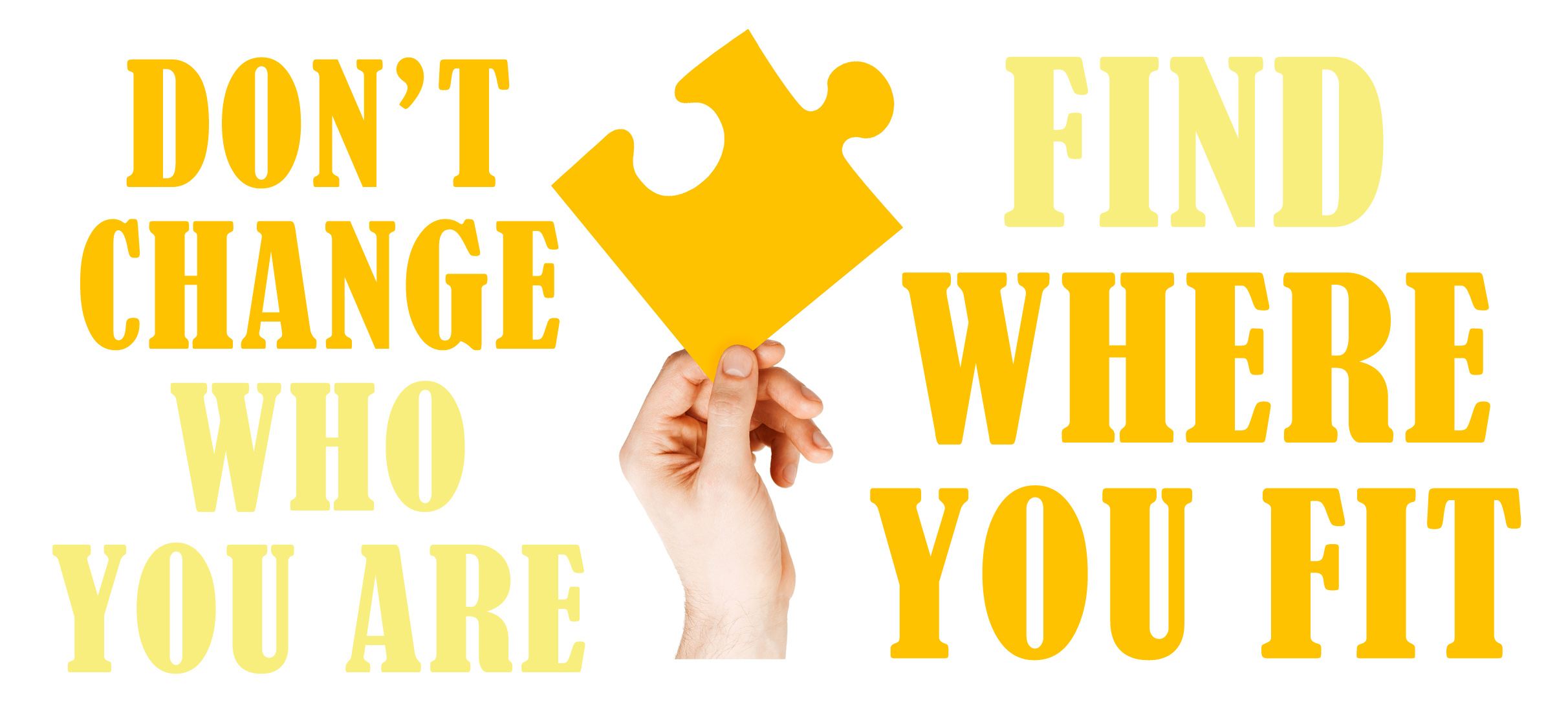By Jessamine Gibb
In self-development and business circles there has been a lot of discussion around how to become a more “positive” person, how to have more extroverted behavior styles, how to be more motivated, what to do about employees or others in your life who do not meet optimal psychological styles of thinking and behavior judged against the current trends.
What this discounts is two things:
- There are always trends in what thinking and behavioral styles are preferred across different eras and contexts.
- Personality psychology has a considerable body of knowledge that points to people varying naturally in certain characteristics, such as those measured by the Five Factor Model (Openness, Conscientiousness, Extroversion, Agreeableness, Neuroticism).
Although right now we often think an entrepreneurial, adventurous, extroverted (but not so much you get diagnosed as ADHD/ADD in childhood perhaps), low neurocism but conscientious mind is the best—and everyone should aspire to that model. However, that has not always been the case. In more conservative times, higher neuroticism (anxiety, caution) and less extroversion was necessary to remain a respectable person in your community who could adhere to the numerous rules society valued. Falling foul of these rules could have wide ranging social consequences. This is still true in current conservative societies outside of the West.
Men and women differ in their statistical likelihood of having certain characteristics. For instance, women are more agreeable and prone to cooperation and also higher on neuroticism, which can lead to them experiencing more negative mind states. Some experts differ in how much they think this gender difference is nature and how much is nurture, seeing as in many instances girls and boys are raised differently.
People with higher IQ are also more (statistically) likely to have higher openness to new ideas and experiences than people with average or below average IQs, who can be more conservative (behaviorally, not necessarily politically). This means they often like novel ideas, appreciate art and music, enjoy unusual cuisine, like to think about concepts for the very enjoyment of doing so, and can come across as abstract and unpredictable to those more rooted in the practical side of life. Lacking in “common sense” would be how some would describe it.
Although some sets of characteristics are more fun to possess—for instance, high extroversion plus low neuroticism leads to being the “life of the party” and more frequent pleasant mood states—none are objectively better or worse than the other. A mousy, thoughtful, highly agreeable individual can be just as useful to themselves and the community in the right social and vocational roles.
Each set of characteristics has its own social and vocational niche where individuals can work with instead of against their strengths and weaknesses. This is very much like an ecological niche, where say a creature may seem unable to do many things but is essential for one particular function, which does in the end maintain the ecosystem in which it lives.
For instance, academic minds with genius level mathematical and physics skills may have been needed to initially design the most famous bridges in the world. BUT, without the practical hands-on laborers, who were able to take great physical risks to get the project complete, their blueprints would have remained as valueless as the paper they were traced upon. Or, highly qualified electrical and computing engineers who think and work slowly may be needed to design the latest and greatest smart phone, but factory workers who can adapt to extremely fast and repetitive assembly work are required to make it a reality. Another example might be an unreliable artist or writer, considered a debauched failure in their day, whose books and works are still enriching the lives of others who perhaps don’t possess their talents hundreds of years later.
EVERYONE with every style of thinking is required for society to function. A clone army of highly extroverted, low-neuroticism, super positive, not very agreeable (highly assertive, lower empathy), highly conscientious workaholic CEO and entrepreneur types would not result in social progress. So, bearing this in mind, perhaps we should be appreciating a wider variety of characteristics in ourselves and others.
What we need to do is understand who and what we are as best we can and make the most of it. We can always improve upon the foundations we are built on but we cannot, and should not, try to turn ourselves into a completely different animal.
You are great just as you are, and don’t let anyone else tell you different!
Jessamine Gibb is a Confidence and Self-Love Coach with Master Coach level training, as well as a B.A. in Sociology. Additionally, she is an Associate Member of the Career Development Association of Australia and a Member of Counselling Tasmania Incorporated.
She is on a mission to help over-achievers and perfectionists with low self-esteem value themselves and get more out of their personal and professional lives. Her style is approachable and nurturing, but she also develops the rapport required to call clients to account when they are neglecting their self-care and stagnating in pursuit of their goals. Having a background in mental health case management she is equipped to work with clients who are maintaining their mental wellness while pursuing their goals.
Take her free mini course at: http://achievecoaching.wixsite.com/selfoveconfidence. For more information visit the website http://achievecoaching.com.au/.





